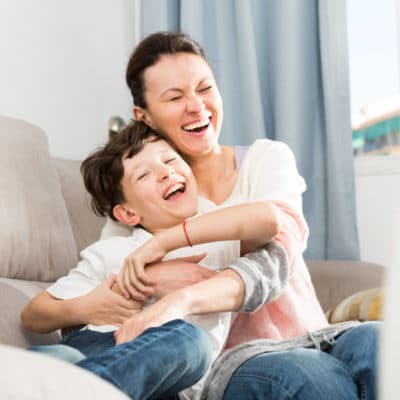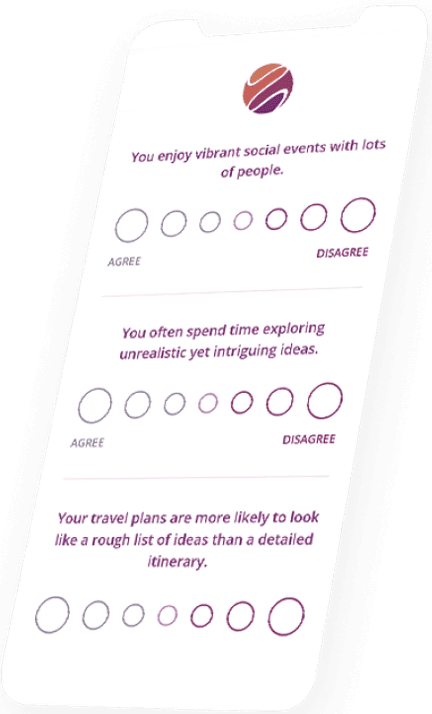

Child
Anxiety
Anxiety – Child
All children feel anxious from time to time, from being scared of the dark or bugs to starting at a new school. Anxiety in children is common, but when its intensity and frequency start impairing your child’s everyday functioning at school, at home, or with peers, your child could suffer from an anxiety disorder. Anxiety treatment can help kids reduce their symptoms and learn coping strategies and techniques to overcome anxiety-related challenges.
Greenwich Psychology Group has expert clinicians specializing in treating different types of anxiety in children and teens. From social anxiety and generalized anxiety disorder to panic disorder and more, we provide treatment to help your children feel better and more confident. Our psychologists use evidence-based behavioral treatments and solution-focused techniques to help reduce anxiety symptoms.
We provide anxiety treatment for kids in Midtown East, New York, and Greenwich, Connecticut, to help children grow strong and overcome their challenges with anxiety.
What Is Child and Teen Anxiety?
Anxiety disorders in children and teens can cause them to feel overwhelmed by intense feelings of fear and worry. Their triggers can stem from different situations and fears. Children with anxiety may fear the dark or separation from their parents. Teens who experience anxiety may worry more about themselves, fearing they aren't performing well academically or are having trouble making and keeping friends or embarrassing themselves.
Stressful events and genetics can contribute to the risk of children and teens developing anxiety disorders.

Symptoms and Signs of Anxiety in Children and Teens
When children show signs of anxiety, these sometimes get passed off as shyness or momentary fears they’ll outgrow. Anxiety disorder occurs when a child’s anxiety persists and hinders their everyday activities, causing them to avoid potentially triggering situations. Leaving anxiety untreated tends to make it worsen over time because a child may rely on avoidance to reduce their uneasiness instead of overcoming their fears.
Symptoms of anxiety in children include:
- Trouble concentrating.
- A change in appetite and hunger.
- Frequently crying.
- Clinginess.
- Stomach issues.
- Becoming easily angered or irritable.
While some anxiety symptoms are similar between children and teens, there are also differences. Some signs of anxiety in teens include:
- Withdrawal from social activities.
- Drops in grades.
- Sleep problems.
- Extreme self-consciousness.
- Increased sensitivity to criticism.

When Do Kids Show Signs of Anxiety?
You can start seeing signs of anxiety in children as early as nine months old. Some babies can develop separation anxiety if they are away from their parents or caregiver for too long. Depending on their environments and situations, it is common for young children and adolescents to start showing signs of anxiety.
Our Team
Daniel DiTieri
Marriage & Family Therapist
Daniel DiTieri is a Licensed Marriage and Family therapist with extensive clinical experience. He received his training at Sacred Heart University, followed by a graduate degree in Marriage and Family Therapy from Mercy College.

Sage Williamson
Marriage & Family Therapist
Sage Williamson is a Licensed Marriage and Family Therapist with extensive clinical experience. She holds a license to practice in both Connecticut and New York State. Sage works well with parents, children, and young adults struggling with anxiety, depression, ADHD, trauma, and school-related and social issues, with an approach geared toward empowering parents.

Anxiety Treatment for Children and Teens
Anxiety treatment helps kids understand how their anxiety works and affects their thoughts, emotions, and behaviors. Understanding their anxiety and what triggers it can help children develop healthy coping skills to help control it. At Greenwich Psychology Group, our expert clinicians may use cognitive-behavioral therapy, dialectical behavior therapy, exposure therapy, or a combination to help your children overcome their anxiety.
Cognitive-Behavioral Therapy (CBT)
Cognitive-behavioral therapy helps children recognize negative thought patterns to change them into positive ones. Your child’s clinician will provide tools and coping strategies to help your child find ways to adjust their thinking, so it’s more productive and positive. Changing their mindset can reduce anxiety symptoms, as your child can feel empowered and confident in handling their fears and emotions.
CBT for anxiety in children is a great way to help children challenge fears and negative thoughts that make them anxious in a safe and controlled environment.
Dialectical Behavior Therapy (DBT)
Dialectical behavior therapy is a type of CBT that focuses on giving children the proper tools and exercises to cope with anxiety, stress, and other intense emotions. Using techniques from CBT and the acceptance strategies of Zen practice, DBT can help increase self-esteem, improve interpersonal relationships and emotional regulation, and create an overall sense of calm.
Exposure Therapy
Sometimes children and teens need to experience structured and gradual exposure to their fears and anxiety triggers to start learning healthy and proper response behaviors. Exposure can help reduce the amount of anxiety felt during the triggering situations.

How Do I Test My Child for Anxiety?
If you believe your child or teen is struggling with anxiety, you can have them tested for anxiety disorders through a trained therapist. At Greenwich Psychology Group, our expert clinicians can talk with you and your child to determine a diagnosis and treatment plan.
Anxiety Treatment for Kids at Greenwich Psychology Group
Help your children overcome their anxiety by enrolling them in treatment. Greenwich Psychology Group provides anxiety treatment for kids in Greenwich, Connecticut, and Manhattan, New York. Get started by scheduling a consultation for your child today.
Take the GPG Symptom Checker
At Greenwich Psychology Group, our symptom checker helps clients track their symptoms of depression or anxiety. Taking the assessment doesn't provide a formal diagnosis, but it can help you determine what next steps you may need to take. The evaluation uses a series of questions to review the feelings and symptoms you've experienced over the past two weeks. The results will help you distinguish if professional help is the best next step.
BeginLatest Topics
Blog Articles
Most recent publications, interviews, blogs, and tips.



Book a Consultation
Hours of Operation
Mon – Sat: 8am to 8pm
Office Address
15 Valley Drive 1st Floor
Greenwich, CT 06831






